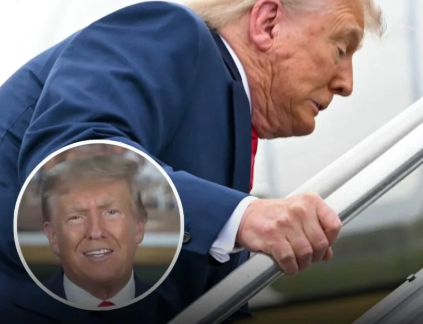President Donald Trump has reignited a heated debate over birthright citizenship, a right enshrined in the 14th Amendment of the U.S. Constitution. In a series of posts on Truth Social on May 15, 2025, Trump called on the Supreme Court to reconsider lower court rulings blocking his executive order to limit this right. His statements, which frame birthright citizenship as a policy meant solely for “the babies of slaves” post-Civil War, have drawn both support and criticism. As the Supreme Court prepares to rule on this issue, here’s what you need to know about Trump’s push, the legal battle, and its implications.
Trump’s Executive Order and Legal Challenges
On January 20, 2025, his first day in office, Trump signed an executive order seeking to end automatic citizenship for children born in the U.S. to parents who are not citizens or lawful permanent residents, including undocumented immigrants or those on temporary visas (e.g., tourist, student, or work visas). The order argues that the 14th Amendment’s clause—“All persons born or naturalized in the United States, and subject to the jurisdiction thereof, are citizens”—does not apply to these children, claiming they are not “subject to the jurisdiction” of the U.S.
This move, a campaign promise from both of Trump’s terms, has faced swift legal pushback. Federal judges in Maryland, Massachusetts, and Washington issued nationwide injunctions, blocking the order as “blatantly unconstitutional.” U.S. District Judge John Coughenour in Seattle, a Reagan appointee, emphasized that birthright citizenship is a “fundamental constitutional right.” Appeals courts in San Francisco and Richmond upheld these blocks, and no court has endorsed Trump’s interpretation.
The Supreme Court agreed to hear arguments on May 15, 2025, focusing not on the order’s constitutionality but on whether lower courts overstepped by issuing nationwide injunctions. A decision, expected by summer 2025, could allow Trump’s policy to take effect in some states or limit judges’ power to block executive actions broadly.
Trump’s Truth Social Statements
In his Truth Social posts, Trump argued that birthright citizenship, established by the 14th Amendment in 1868, was intended solely to protect the citizenship of children born to formerly enslaved people after the Civil War, not to grant citizenship to children of immigrants. He wrote, “Birthright Citizenship was not meant for people taking vacations to become permanent Citizens… all the time laughing at the ‘SUCKERS’ that we are!” He claimed the U.S. is the “only Country in the World” with this policy—a misstatement, as 35 countries, including Canada and Mexico, offer birthright citizenship.
Trump further asserted, “The Civil War ended in 1865, the Bill went to Congress in 1866… It had nothing to do with Illegal Immigration for people wanting to SCAM our Country.” He urged the Supreme Court to recognize this historical context, calling the policy a driver of “birth tourism” and illegal immigration exploited by “drug cartels.”
Legal and Historical Context
The 14th Amendment was ratified to overturn the 1857 Dred Scott v. Sandford decision, which denied citizenship to Black Americans. In 1898, the Supreme Court’s United States v. Wong Kim Ark ruling clarified that the amendment guarantees citizenship to nearly all U.S.-born individuals, regardless of parental immigration status. This precedent, reaffirmed in cases like Plyler v. Doe (1982), has stood for 127 years.
Trump’s claim that the amendment applies only to former slaves contradicts this precedent. Legal scholars, including Saikrishna Prakash of the University of Virginia, argue that an executive order cannot override the Constitution, and courts have consistently rejected Trump’s interpretation. However, some conservatives, like former Trump attorney John Eastman, support his view, arguing the “subject to the jurisdiction” clause excludes children of non-citizens.
The Supreme Court’s conservative 6-3 majority, including three Trump appointees, has raised speculation about a potential shift. Yet, during May 15 arguments, justices like Sonia Sotomayor cited four precedents against Trump’s order, and even conservative Justice Amy Coney Barrett called the administration’s legal arguments “novel” and “sensitive.”
Potential Impacts
If Trump’s order takes effect, it could deny citizenship to over 150,000 newborns annually, per plaintiffs like 22 Democratic state attorneys general. The Migration Policy Institute estimates that by 2050, 4.7 million U.S.-born individuals could be deemed unauthorized immigrants, potentially facing statelessness or deportation.
Critics, including the ACLU, warn of “profoundly cruel” consequences, such as second-class status for U.S.-born children and increased undocumented populations. Proponents, like those on X, argue it curbs “birth tourism” and aligns with the amendment’s original intent.
The case also tests the scope of nationwide injunctions. Conservative justices, including Samuel Alito, expressed frustration with these broad orders, but liberal Justice Elena Kagan warned that limiting them could create a “patchwork system” of citizenship, causing “chaos on the ground.”
Broader Immigration Agenda
Trump’s birthright citizenship push is part of a broader immigration crackdown. Since January 2025, his administration has deported thousands to El Salvador’s “mega-jail” under the Alien Enemies Act, bypassing legal proceedings, and offered “free flights” with “exit bonuses” to non-citizens. These policies, alongside trade and crime initiatives, reflect Trump’s aggressive Day One agenda.
Navigating the Debate
Trump’s statements have polarized opinions. Supporters see them as a bold stand against immigration loopholes, while critics view them as unconstitutional and xenophobic. To engage with this issue responsibly:
- Verify Information: Rely on court rulings or reputable sources like NPR or Reuters rather than social media claims.
- Understand the Law: Read the 14th Amendment and Wong Kim Ark to grasp the legal foundation of birthright citizenship.
- Support Affected Communities: Donate to or volunteer with groups like the ACLU or Immigrant Legal Resource Center to aid those impacted.
- Reflect Critically: Consider the human cost of policy changes, such as statelessness, alongside arguments about immigration control.
The Supreme Court’s ruling, expected by July 2025, could reshape U.S. citizenship or redefine judicial power. Until then, Trump’s provocative rhetoric ensures this debate remains front and center.
What are your thoughts on Trump’s push to end birthright citizenship? Share your perspective or questions about immigration policy in the comments below!




The debate over birthright citizenship is undeniably complex and deeply rooted in history. Trump’s focus on the 14th Amendment raises important questions about its original intent and modern application. While some argue that his stance addresses legitimate concerns about immigration, others see it as an attack on constitutional principles. The Supreme Court’s upcoming decision could have far-reaching consequences for millions of people. It’s crucial to consider both the historical context and the potential impact on future generations. Do you think the 14th Amendment should be reinterpreted to address contemporary issues, or does this risk undermining its foundational purpose?
This is a highly contentious issue that touches on the very foundation of U.S. citizenship. Trump’s framing of birthright citizenship as a policy tied solely to the post-Civil War era is a bold interpretation, but is it historically accurate? The 14th Amendment was designed to ensure equality and citizenship for all born on U.S. soil, not just the children of slaves. By linking it to “birth tourism” and illegal immigration, Trump seems to be conflating separate issues. Could this be a strategic move to rally his base, or is there a genuine legal argument here? The Supreme Court’s decision will undoubtedly have far-reaching consequences, but is it wise to reinterpret such a fundamental right based on contemporary political concerns? What do you think—should birthright citizenship be redefined, or is this an overreach?
This is a highly contentious issue that touches on the very foundation of U.S. citizenship. Trump’s framing of birthright citizenship as a policy tied solely to the post-Civil War era is a bold interpretation, but is it historically accurate? The claim that it’s being exploited for “birth tourism” and illegal immigration is provocative, but where’s the evidence to support this? The Supreme Court’s decision could have far-reaching consequences, but is it their role to reinterpret the 14th Amendment in this way? Critics argue this move is unconstitutional, but supporters see it as necessary to close loopholes. What’s your take on the balance between preserving constitutional rights and addressing modern immigration challenges? Do you think this push is more about policy or politics?
It’s fascinating how this debate keeps resurfacing, especially with such strong opinions on both sides. Trump’s focus on historical context raises questions about the original intent of the 14th Amendment—was it truly meant to address modern immigration issues? The idea of “birth tourism” and its exploitation by cartels is a serious claim, but is there enough evidence to support it? While some see this as a necessary step to close loopholes, others argue it undermines the Constitution. How do we balance historical interpretation with contemporary challenges? What’s your take on the Supreme Court’s potential to redefine citizenship? This feels like a pivotal moment for the U.S., and I’m curious where you stand on it.